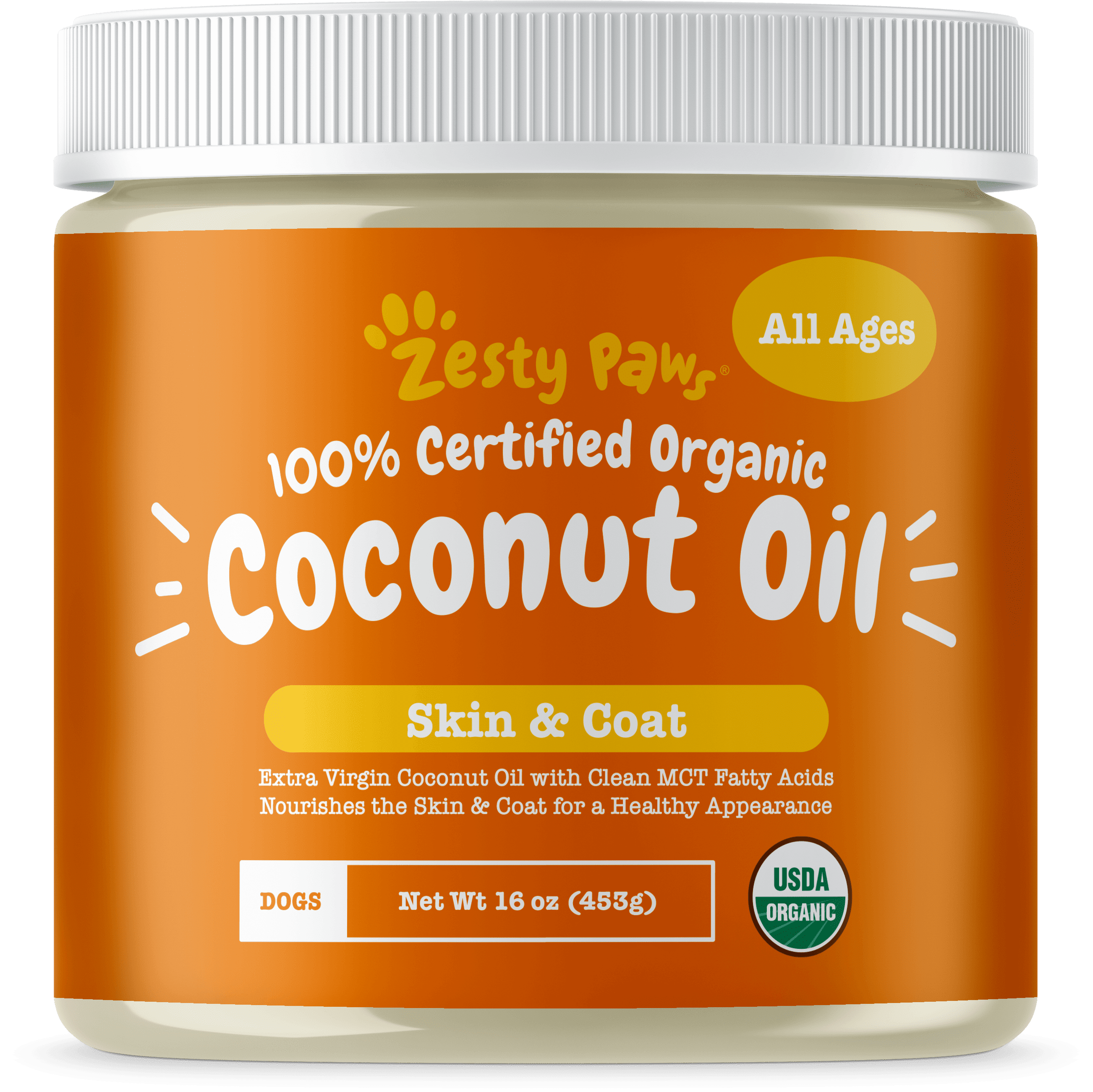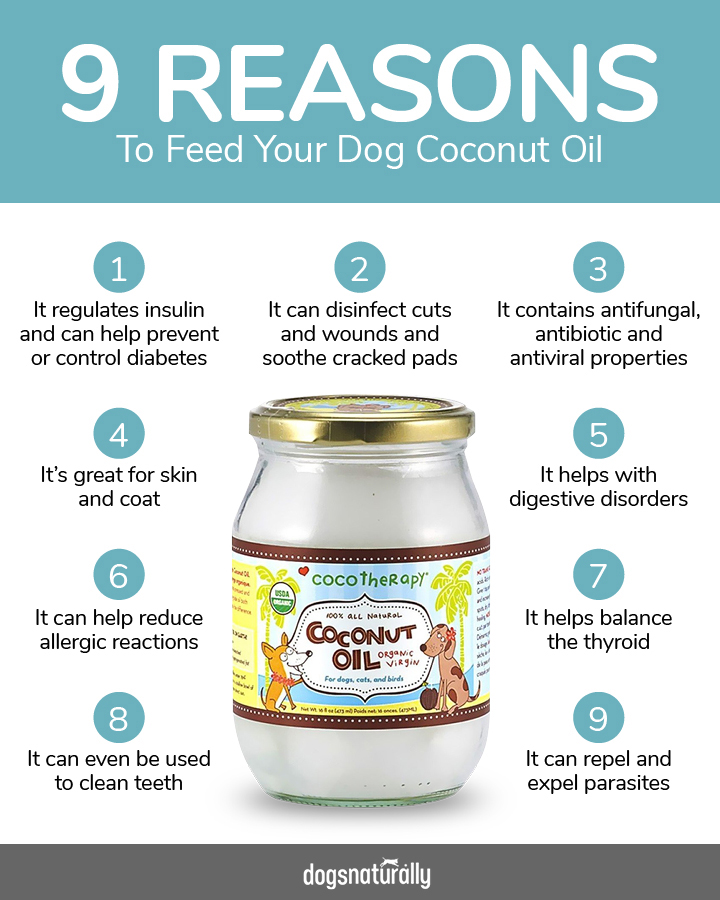
Coconut Oil in Dog Food: A Deep Dive into Benefits, Considerations, and Choosing the Right Product
In the ever-evolving world of pet nutrition, coconut oil has emerged as a popular ingredient, touted for its potential health benefits for dogs. While it’s often added to dog food, it’s important to understand what coconut oil can offer, how it works, and how to select the right dog food with this addition.
What is Coconut Oil?
Coconut oil is a type of edible oil derived from the kernel or meat of mature coconuts harvested from the coconut palm (Cocos nucifera). It’s a rich source of saturated fats, primarily medium-chain triglycerides (MCTs). These MCTs are what give coconut oil its unique properties and potential health benefits.
The Potential Benefits of Coconut Oil for Dogs
-
Improved Skin and Coat Health:
- Moisturization: Coconut oil can act as a natural moisturizer, both when ingested and applied topically. It helps to hydrate the skin, reducing dryness, flakiness, and itching.
- Shiny Coat: The fats in coconut oil contribute to a glossy and healthy coat. Regular consumption can improve the overall appearance and texture of your dog’s fur.
- Allergy Relief: Some studies suggest that coconut oil can help alleviate allergy symptoms in dogs. Its anti-inflammatory properties may reduce skin irritation and inflammation associated with allergies.
-
Enhanced Digestive Health:
- Improved Nutrient Absorption: MCTs in coconut oil are easily digested and absorbed, potentially improving the absorption of other nutrients in the dog’s diet.
- Gut Health: Coconut oil contains lauric acid, which has antimicrobial properties. This can help to balance the gut microbiome by reducing harmful bacteria and promoting beneficial bacteria growth.
- Reduced Inflammation: Coconut oil’s anti-inflammatory properties can help soothe the digestive tract, reducing inflammation and promoting healthy digestion.
-
Cognitive Function Boost:
- Brain Fuel: MCTs are converted into ketones, which can serve as an alternative energy source for the brain. This can be particularly beneficial for senior dogs or those with cognitive decline.
- Improved Memory and Focus: Some studies suggest that MCTs may improve cognitive function, memory, and focus in dogs.
-
Immune System Support:
- Antimicrobial Properties: Lauric acid, a primary MCT in coconut oil, has antibacterial, antiviral, and antifungal properties. This can help to strengthen the immune system and protect against infections.
- Reduced Inflammation: Chronic inflammation can weaken the immune system. Coconut oil’s anti-inflammatory properties can help to reduce inflammation and support a healthy immune response.
-
Weight Management:
- Increased Metabolism: MCTs are metabolized differently than long-chain triglycerides (LCTs). They are more readily used for energy, potentially boosting metabolism and aiding in weight management.
- Satiety: Coconut oil may promote a feeling of fullness, which can help to reduce overeating and support weight loss.
Considerations and Potential Risks
While coconut oil offers several potential benefits, it’s essential to be aware of the following considerations and potential risks:
-
High Fat Content: Coconut oil is high in saturated fat. While MCTs are generally considered healthier than LCTs, excessive consumption can still lead to weight gain or digestive upset.
-
Allergies: Although rare, some dogs may be allergic to coconut. It’s essential to monitor your dog for any signs of an allergic reaction, such as itching, hives, or digestive upset.
-
Digestive Upset: Introducing coconut oil too quickly or in large amounts can cause digestive upset, such as diarrhea or vomiting. It’s best to start with small amounts and gradually increase the dosage as tolerated.
-
Quality and Purity: Not all coconut oils are created equal. Choose high-quality, organic, and unrefined coconut oil for the best results. Avoid products with added chemicals or preservatives.
-
Not a Complete Diet: Coconut oil should not be used as a substitute for a balanced and complete dog food. It should be used as a supplement to enhance the nutritional value of your dog’s diet.
Choosing the Right Dog Food with Coconut Oil
When selecting dog food with added coconut oil, consider the following factors:
-
Ingredient List: Check the ingredient list to ensure that coconut oil is listed as an ingredient. It should ideally be listed near the top of the list, indicating a significant amount.
-
Quality of Ingredients: Look for dog foods that use high-quality, natural ingredients. Avoid products with artificial colors, flavors, or preservatives.
-
AAFCO Statement: Ensure that the dog food meets the nutritional standards established by the Association of American Feed Control Officials (AAFCO). This ensures that the food is complete and balanced for your dog’s life stage.
-
Other Beneficial Ingredients: Consider dog foods that contain other beneficial ingredients, such as omega-3 fatty acids, probiotics, and antioxidants. These ingredients can work synergistically with coconut oil to promote overall health.
-
Brand Reputation: Choose dog foods from reputable brands with a proven track record of producing high-quality products.
-
Life Stage and Breed: Select a dog food that is appropriate for your dog’s life stage (puppy, adult, senior) and breed size.
How to Introduce Coconut Oil into Your Dog’s Diet
If you’re considering adding coconut oil to your dog’s diet, here’s how to do it safely:
-
Start Slowly: Begin with a small amount, such as 1/4 teaspoon per 10 pounds of body weight per day.
-
Mix with Food: Mix the coconut oil with your dog’s regular food.
-
Monitor for Side Effects: Observe your dog for any signs of digestive upset, such as diarrhea or vomiting.
-
Gradually Increase Dosage: If your dog tolerates the coconut oil well, gradually increase the dosage to the recommended amount. A general guideline is 1 teaspoon per 10 pounds of body weight per day, but it’s best to consult with your veterinarian.
-
Adjust as Needed: Adjust the dosage based on your dog’s individual needs and response.
Consulting with Your Veterinarian
Before making any significant changes to your dog’s diet, it’s always best to consult with your veterinarian. They can assess your dog’s individual needs and provide personalized recommendations. Your veterinarian can also help you determine the appropriate dosage of coconut oil and monitor your dog for any potential side effects.
Conclusion
Coconut oil can be a valuable addition to your dog’s diet, offering a range of potential health benefits. However, it’s essential to choose high-quality products, introduce coconut oil gradually, and monitor your dog for any adverse reactions. By understanding the benefits, considerations, and proper usage of coconut oil, you can make informed decisions about your dog’s nutrition and promote their overall health and well-being. Always consult with your veterinarian before making any significant changes to your dog’s diet to ensure that it’s safe and appropriate for their individual needs.

